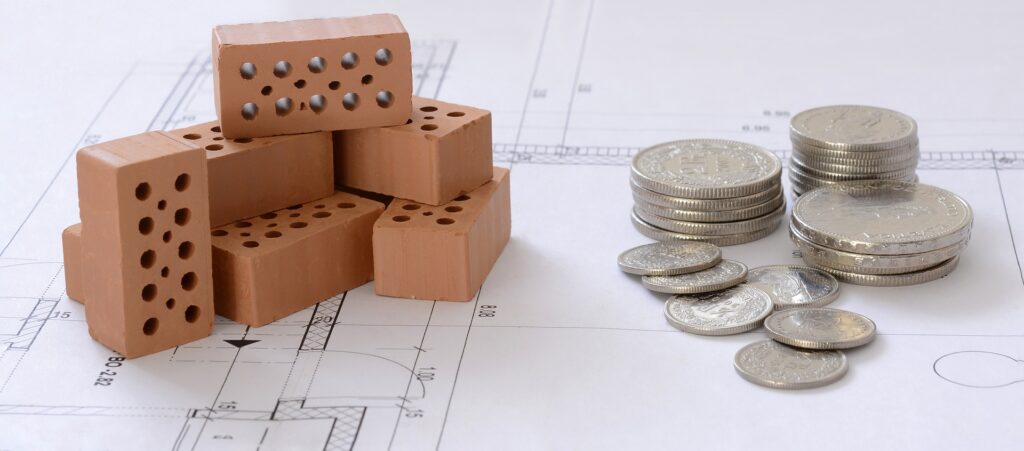
What is a Capital Gain or Capital Loss?
When you sell a capital asset or an investment and the proceeds of the sale exceed the adjusted cost base (ACB) of the asset, you realize a capital gain. However if the proceeds are lesser in value than the adjusted cost base, it is a capital loss.
Capital losses are not taxable, and are only available for non-depreciable assets, such as land, shares or other investments.Capital gains on the other hand are added to taxable income at half (50%) of the amount of the gain.
What is Capital Property?
According to the Canada Revenue Agency, capital assets that are subject to Capital Gains Tax include buildings, land, cottages or equipment you use for a business, shares, bonds and mutual fund trust units.
How are Capital Gains taxed in Canada?
The capital gain must be included in the annual income tax return and is taxed a percentage of that gain, which is referred to as the inclusion rate.
In Canada, the capital gain inclusion rate is 50%, which means when a capital asset is sold for more than it was paid for, the CRA applies a tax on half (50%) of the capital gain amount. The taxes must be paid on 50% of the gain at the marginal tax rate. The tax is dependent on the individual’s tax bracket and the province of residence.
How is Capital Gains Tax calculated on real estate in Canada?
According to the CRA, in order to calculate the capital gains tax you need to know the following amounts:
- The proceeds of the disposition
The proceeds of the disposition are the amount you received after selling off your property
- Adjusted Cost Base (ACB)
The adjusted cost base is the amount you paid to purchase the capital property including any additional costs incurred during the ownership period for renovations, as well as any costs paid to acquire the property (i.e. legal fees)
- Outlays and expenses incurred to sell the property
These are the costs that you incurred to dispose of the property. These can include legal fees, selling commissions, surveyors’ fees, fixing-up fees, finders’ fees, brokers’ fees, advertising costs and transfer taxes.
As an example, if you had a capital gain of $20,000. According to the inclusion rate, 50% or half of that is taxable which is $10,000. The tax rate would be determined according to the individual’s tax bracket along with the province of residence.
How to Reduce Your Capital Gains Tax in Canada on Real Estate?

Though the inclusion rate is the same for everyone there are certain ways to lower the amount of tax on your capital gains.
- Timing the sale of investments and properties
Timing the sale of investments can be a powerful tax deferral tool. For instance, if your sale has generated a profit you might consider postponing the sale until after January 1st of the next year. This will in turn incur the capital gains tax that year and only have to pay by April 30th of the following year.
If you have a variable income, selling a capital asset during the year when your income is low may save you money. If you have capital assets where you incurred losses and some where you incurred profits, timing them together will help offset the loss against the profit and reduce your overall capital gains tax. You can also use the principal-residence exemption to reduce capital gains on residential property by showing it as your primary residence to avoid capital gains.
- Giving Away Assets
If you make charitable contributions on a regular basis or if you want to give money to a family member you can use donations or gifts to reduce your capital gains. For instance, if you want to donate $1,000, rather than paying them in cash and having triggered capital gains tax, you can donate stock valued at $1,000 but may have originally cost you less. This way you avoid triggering any capital gains tax.
- Capital Gain Vs. Capital Loss
A capital loss is when you sell your non-depreciable property for less than the Adjusted Cost Base.
Gifts to your family members may trigger capital gains tax as CRA deems a gift taxable disposition of an asset. You can save money by gifting an asset that has generated a loss but you want to keep it due to sentimental value to the family. You can use this capital loss to adjust your other capital gains, while your family members will have the benefit of retaining the shares.
- Lifetime Capital Gains Exemption (LCGE)
Canadian residents who operate active businesses, farms or fishing properties and whose business is primarily Canadian may reduce their capital gains by the amount of the exemption when they sell these businesses or properties.
The lifetime capital gains exemption which is for small business corporation shares and for qualified fishing and farming properties is aimed at reducing this amount of tax.
Businesses have to use at least 90% of their assets in an active business operating primarily in Canada to qualify.
- Capital Gain Reserve
You can defer a capital gain on real estate in Canada. If you sold a real estate property in Canada but the payment will be received in installments over a period of time, even then this capital gain has to be reported in your personal income tax return. The capital gain can be deferred upto five years using the Capital Gain Reserve. This will however only be beneficial if the future taxable income falls under lower tax brackets, resulting in a lower tax rate.
You can only defer the capital gain until you receive your payment in full or upto five years if you are a Canadian resident. You need to submit Form T2017 in Schedule 3 of the Personal Tax Return.
Do you need help reducing your Canadian Capital Gains Tax on Real Estate?
When filing personal income tax returns, one should be mindful of how to accurately report a property sale which avoids confusion and is not too costly as well. With the help of our team of professionals at SRJ Chartered Professional Accountants, we can help you minimize your capital gains tax and make sure you do not pay more than required. You can find a detail of services we provide for personal tax returns here.
Feel free to schedule a consultation with one of our accountants to help with your personal tax needs. You can book one here.